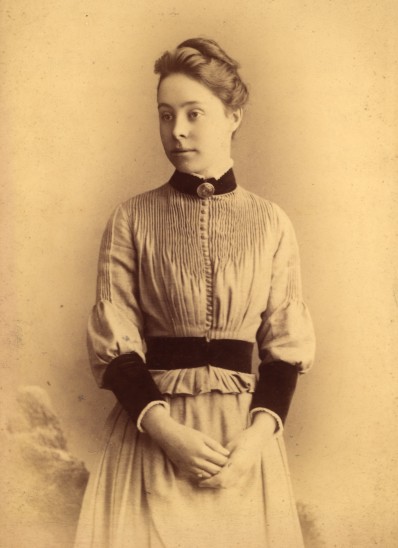Philippa Fawcett did the unimaginable: she beat every other man and woman who competed in the prestigious mathematical examinations held at Cambridge University. This was in 1890, a time long before men and women were even allowed to study for degrees side by side. Even the science of the time suggested that this probably couldn't happen:
Central to the 19th-century concept of human development was the idea that the adolescent body was a closed system; there was only so much energy available, and so a body in which resources were diverted to mental development was one in which physical development necessarily suffered. This was thought to be a particular problem for women, because their reproductive system was far more complicated than men’s and so consumed a greater proportion of the body’s resources. A young woman who studied hard during puberty was believed to be taking special risks since “the brain and ovary could not develop at the same time,” as historian Judith Walzer Leavitt points out.The story of her triumph was detailed over at the Smithsonian blog and is worth the read on its own. However, I happened to notice one very interesting aspect of the tale that has been rather relevant to me in the last couple of days: the fact that, unlike many of the previous male champions, Phillipa maintained a very good life balance while studying for the exams.
Just look at what the boys went through to become the top scorers, known as Wranglers:
The most serious candidates invariably hired tutors and worked more or less round the clock for months. The historian Alex Craik notes that C.T. Simpson, who ranked as Second Wrangler in 1841, topped off his efforts by studying for 20 hours a day in the week before the exams and “almost broke down from over-exertion… [he] found himself actually obliged to carry a supply of ether and other stimulants into the examinations in case of accidents.” James Wilson, who topped the rankings in 1859, had a nervous breakdown immediately after his exams; on his recovery he discovered he had forgotten all the math he ever knew except elementary algebra. And James Savage worked himself so hard that he was found dead of apoplexy in a ditch three months after being named Senior Wrangler of 1855.In contrast, Phillipa "led 'a disciplined and orderly life,' rising at 8 a.m. and rarely going to bed later than 11 p.m. She studied six hours a day, but refused to yield to the then-popular practice among aspirant Wranglers of working through the night with a wet towel wrapped around her head."
Just yesterday I finally read a time management article that had been making the rounds. Phillipa's routine reminded me of the advice in that article. As someone who also strives for a regular working day (and sometimes feeling guilty about it!), I am glad to see how others are able to achieve success with similar working hours. Definitely check out the article:
Time management: How an MIT postdoc writes 3 books, a PhD defense, and 6+ peer-reviewed papers — and finishes by 5:30pm
Do you have any time management secrets or have you read any other great articles on the subject?



3 comments:
I'm only just starting to realize that hard or long work isn't strictly equal to good or productive work. For now I'm still up for about 17 hours a day but I'm trying to make sure that I take a good few hours off every day to do non-work stuff. Also starting to cook for myself and take up a hobby again (like drawing). I think many graduate students treat grad school as undergrad part 2 and I'm pretty sure that's not the right way to go about it.
Yeah, working too long for me just makes the time I work a lot less effective.
Women have always had an amazing impact on the world. Thanks for sharing this story!
Post a Comment
Comments are moderated - please be patient while I approve yours.
Note: Only a member of this blog may post a comment.